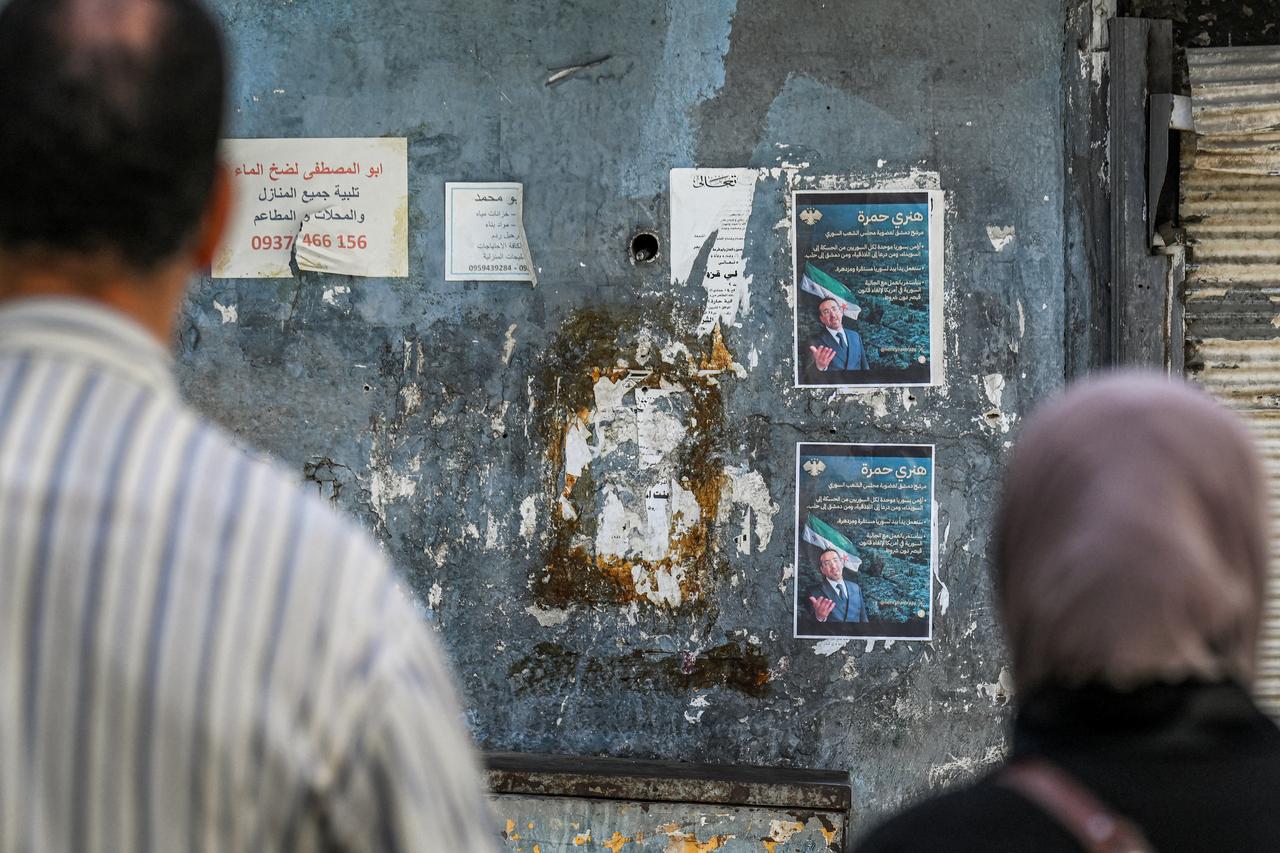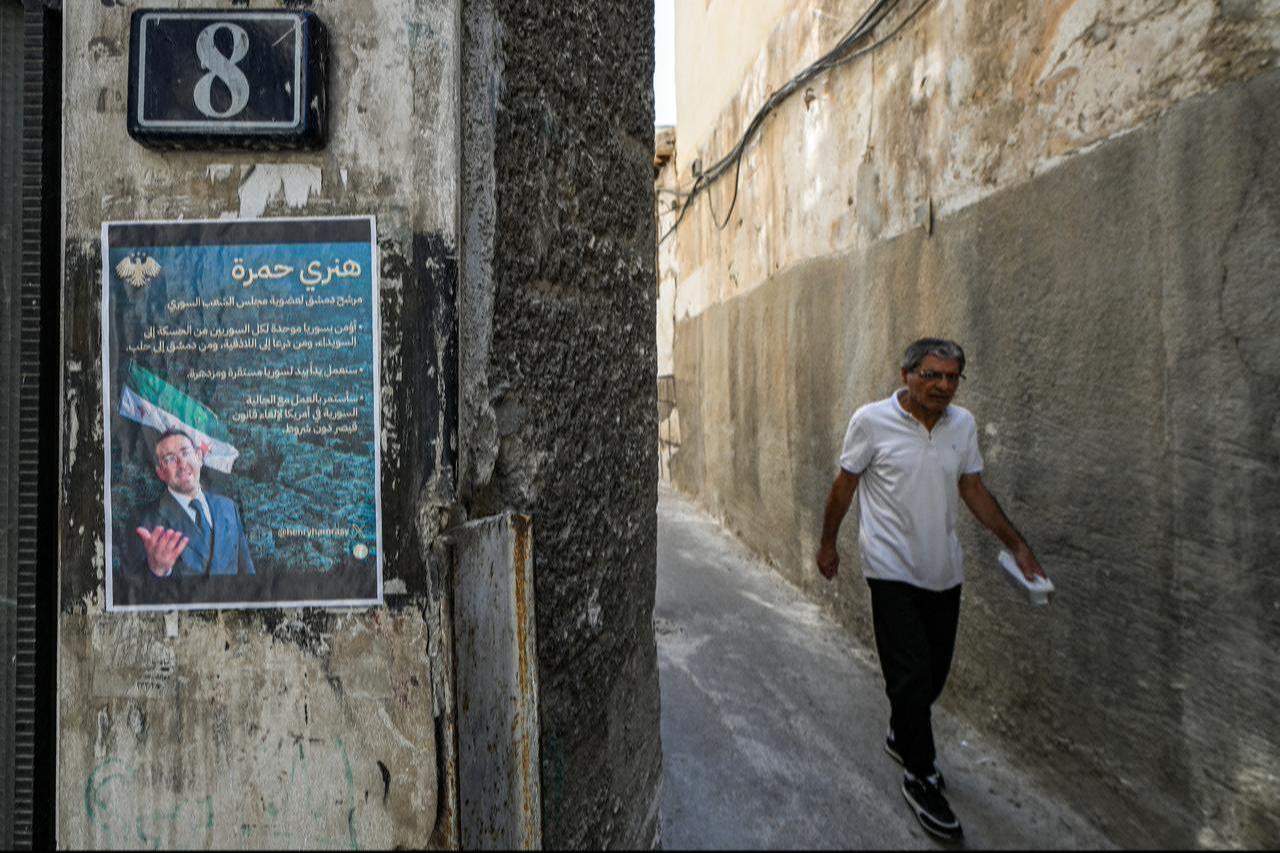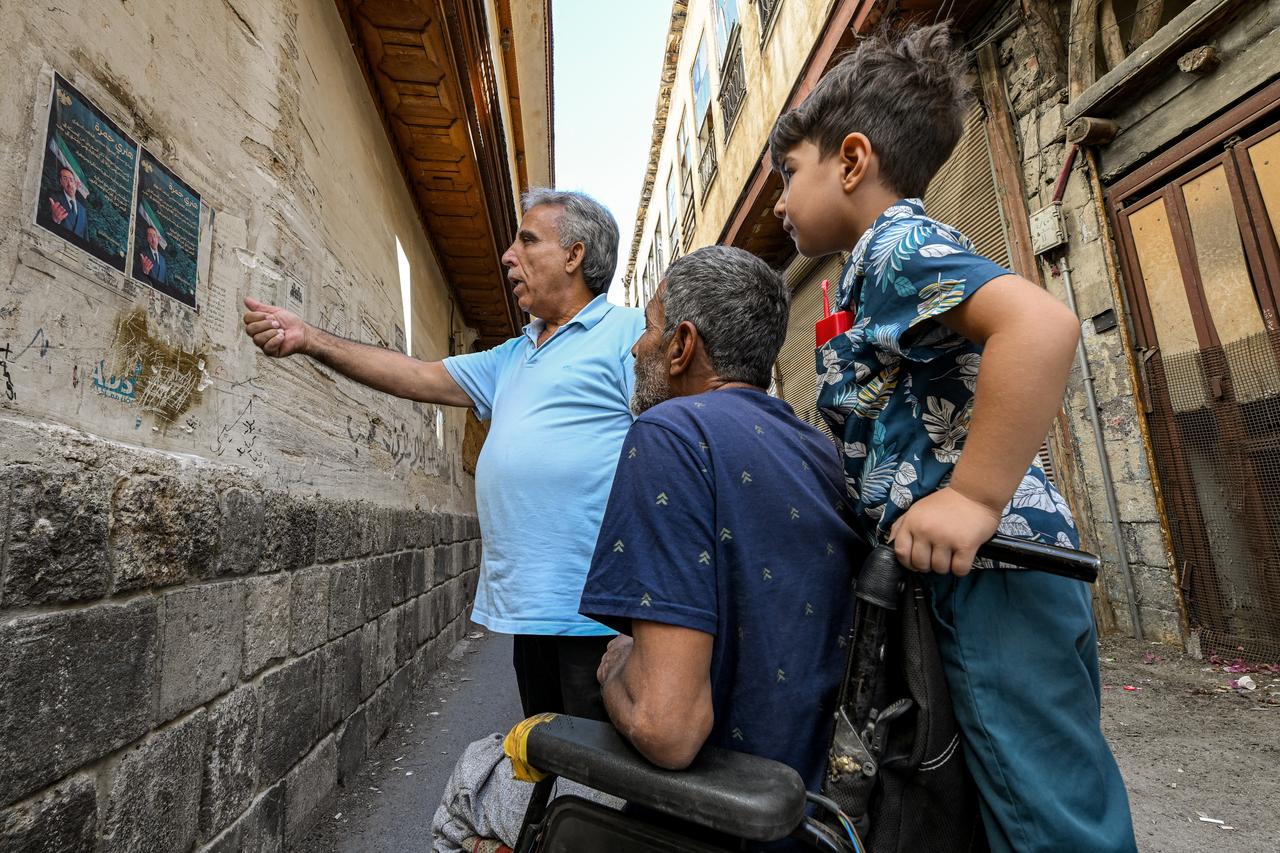
Syrian-American Henry Hamra, the son of the last rabbi to leave Syria in the 1990s, is running for the People’s Council, becoming the first Jewish candidate in nearly 70 years.
Damascus’ transitional authorities are preparing to form the first parliament on Sunday.
Hamra’s candidacy marks a historic step for the dwindling Jewish community, whose numbers declined after the Arab-Israeli conflict and successive emigrations.
In February, Hamra, 47, visited Damascus with his father in the first public visit by Syrian Jews since the ousting of former President Bashar al-Assad. His father had faced strict travel restrictions under Hafez al-Assad until the early 1990s.
Election posters in Damascus’ “Jewish Quarter” show Hamra with the Syrian flag, labeled “Damascus candidate for the Syrian People’s Council.”

According to media reports, if elected, he would become the first Jewish representative in the Syrian parliament since the late 1940s, ahead of the upcoming vote on Oct. 5. Syria’s Jewish community significantly declined under the former Assad regime
The Supreme Election Committee spokesperson, Nawar Najma, said, “Henry Hamra is an official candidate and has announced his program like any other candidate.”
Henry Hamra’s name appears on a list of 1,578 candidates, including 14% women, competing for 210 council seats.
One-third of the members are appointed by President Ahmad al-Sharaa, while the rest are elected by regional bodies under the constitutional decree.

On his new X account, Hamra shared a video expressing his vision for “a prosperous, tolerant, and just Syria,” pledging to connect Syrian Jews at home and abroad to their homeland, protect cultural heritage and identity—including Judaism—and contribute to reconstruction efforts.
According to Syrian historian Sami Mubaid, the last Jewish deputy elected to the People’s Council was in 1947.
The current head of Syria’s Jewish community, Bakhur Shmanṭoub, called Hamra’s candidacy “a positive return, especially under the new government.”
Syria’s Jewish community was allowed to practice their religion, but movement was restricted and travel abroad was banned until 1992. Since then, their numbers have declined from around 5,000 to just a handful.